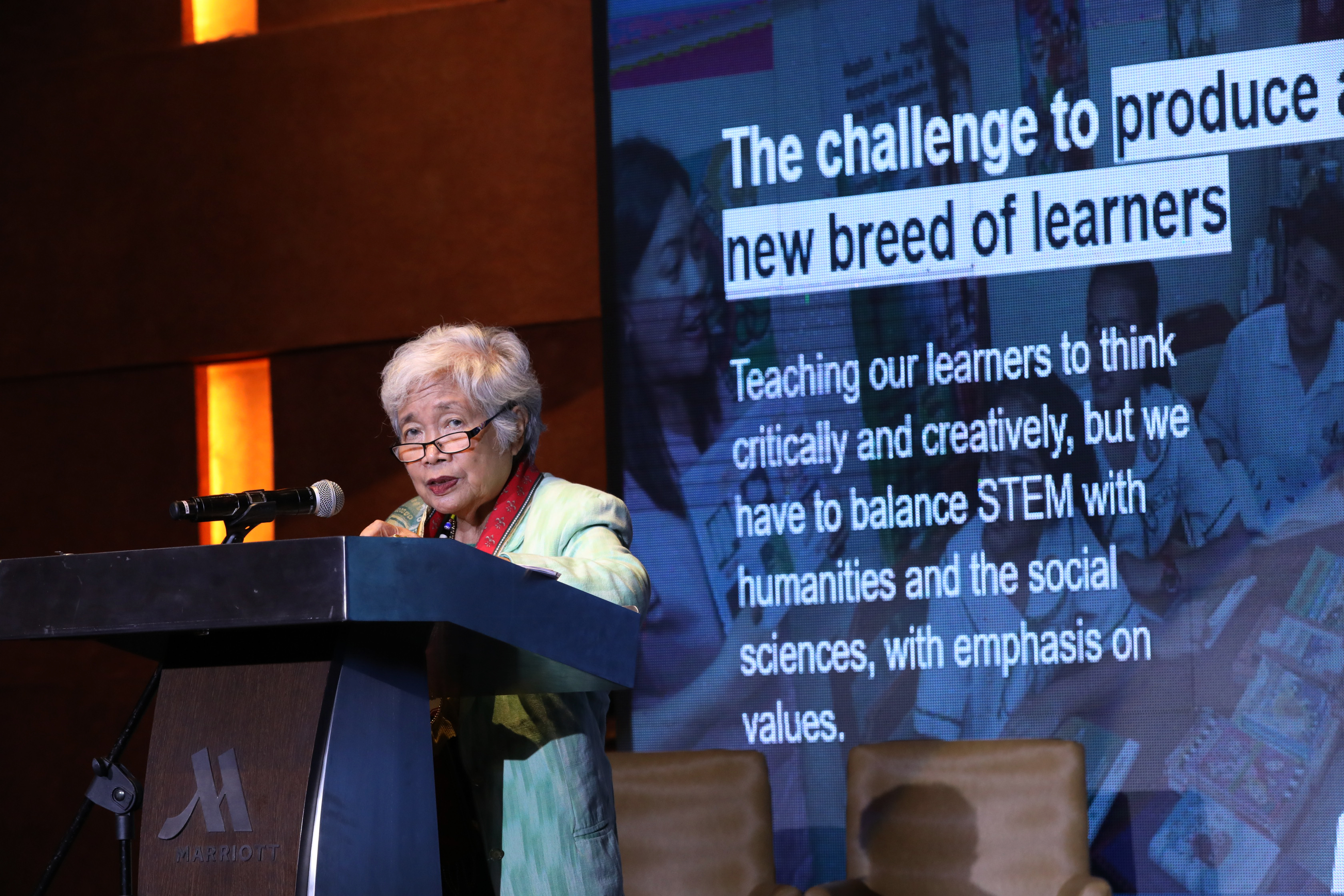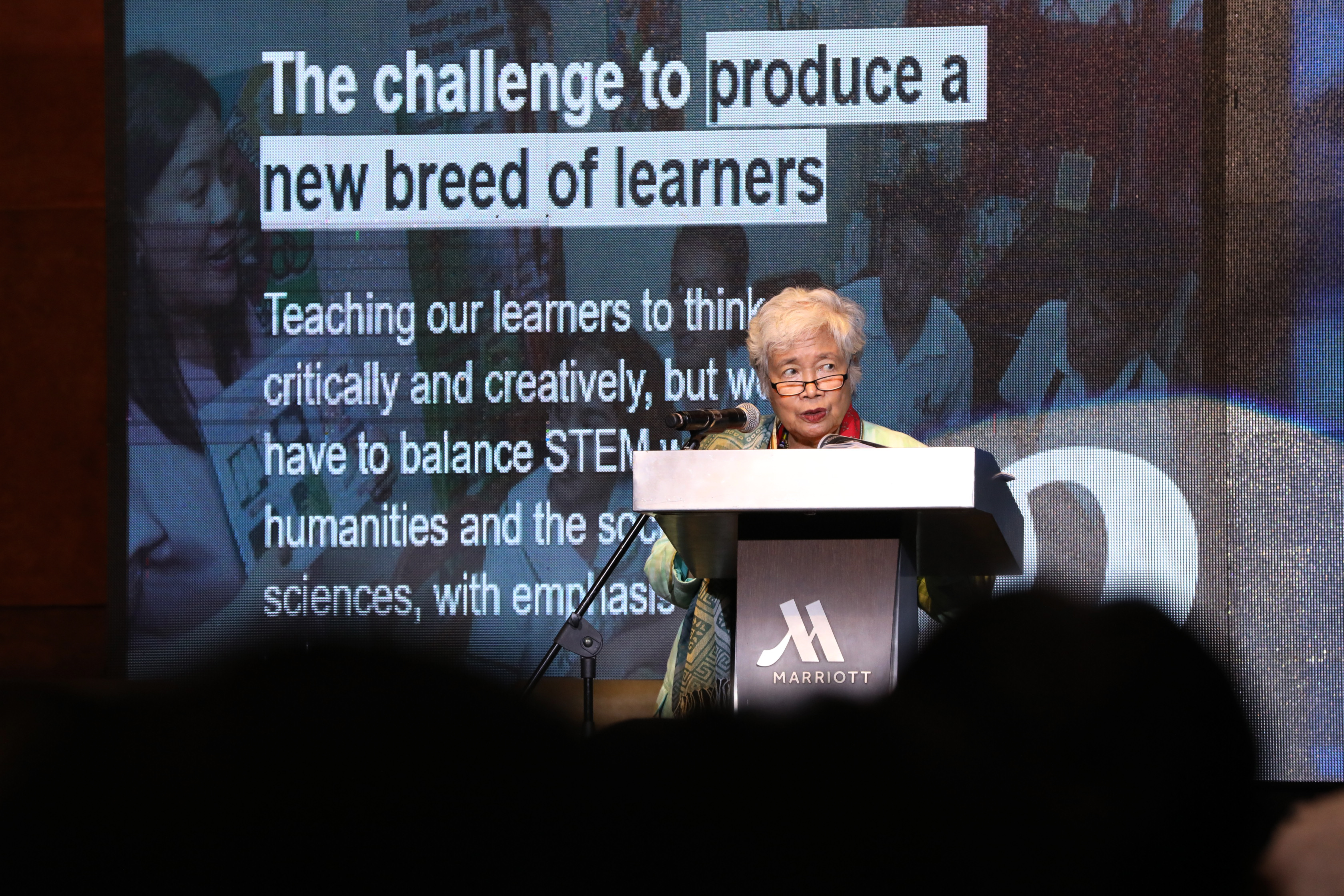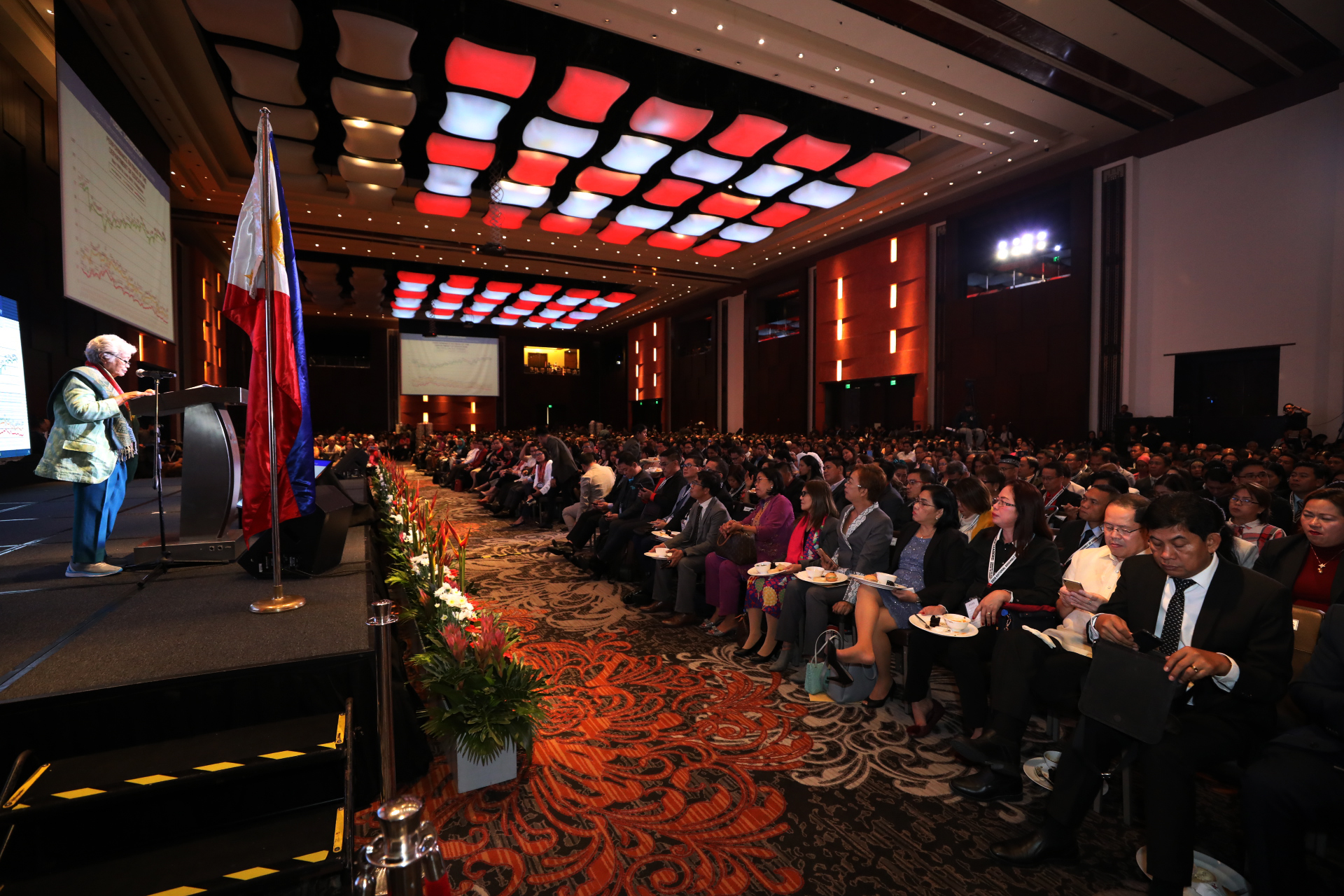PASAY CITY, October 9, 2019 – Secretary Leonor Magtolis Briones highlighted the challenges of technological advancements confronting today’s education leaders during the Third National Assembly of Education Leaders (NAEL) last September 24 in Marriott Hotel, Pasay City.
Speaking before 4,000 leaders from the Department of Education (DepEd), composed of directors, superintendents, supervisors, and principals, Briones discussed the challenges that Philippine teachers must hurdle: to change the way teachers teach the learners; to produce a new breed of learners; to upgrade the capacity of teachers; and to improve the educational facilities and equipment.
Fourth Industrial Revolution and rise of AI
Briones said that the rise of artificial intelligence has changed the way people learn as educational materials have become accessible to all through smart devices and computers.
She added that the Department must respond to these changes as it continues to propel an educated human society.
Citing the realities of genetic engineering, robotics, and brain implants, she stressed the possibility of immortality when artificial intelligence harmonizes and integrates with humans.
“We are going beyond the Fourth Industrial Revolution as we are moving from homo sapiens to home deus brought by scientific and technological advances. We are not talking about what is to come, but what is now, and our response to the challenges of the Fourth Industrial Revolution which transforms institutions and industries,” Briones stated.
She also challenged the participants on how to teach in the 21st century with all the changes and new discoveries: “You know how your parents and your professors taught? You know how to teach in the present. But how are you going to teach in this time of 21st century and of the Fourth Industrial Revolution?”
Artificial intelligence vs information and data
Mentioning the scarcity of data in the past when the books were the only source of information, Briones cited the internet and artificial intelligence as useful sources of information.
“You have enormous amounts of data which are useful, which make the life of learners satisfactory, but we need to teach especially the SHS [learners] to discern and differentiate what data is relevant and important, how to synthesize data, and what do these data mean to us. Artificial knowledge has increased access to education and it is replacing knowledge teaching. All our future narratives involve algorithms, but if we are not careful, they could replace us altogether,” she said.
Briones said that in this digital age, learners are often more exposed to different environmental technologies that could influence their behavior: “This is not to say that the youth’s values are failing, but the world is changing, the values of society, and the grown-ups are also changing.”
Finally, the Secretary challenged the education leaders to influence the learners in shaping their values: “Our institution should hone our learners to contribute to a more inclusive, just, peaceful, and sustainable world.”
Held from September 24 to 27, the three-day event, with the theme “Challenged Leaders: Embracing the Future, Braving the Changes,” was organized by the Association of DepEd Directors (ADD), Inc.
END





